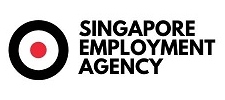HR compliance issues can take various forms and often depend on factors such as an organization’s size, industry, and employee conduct. Here, we examine some prevalent HR compliance concerns and how they impact businesses in Singapore:
-
Discriminatory Hiring Practices:
– In a diverse nation like Singapore, ensuring equal employment opportunities and maintaining a transparent hiring process are crucial.
– While Singapore doesn’t have specific anti-discrimination laws, employers are expected to adhere to the Fair Consideration Framework and Tripartite Guidelines on Fair Employment Practices.
– Cases of discriminatory hiring practices have risen, with investigations conducted by The Tripartite Alliance for Fair and Progressive Employment Practices (TAFEP).
– These cases can be based on nationality, age, gender, race, marital status, family responsibilities, religion, or disabilities.
– Employers found guilty may face consequences such as suspension of work pass privileges, loss of tax benefits, or being barred from public sector contracts.
– HR compliance is vital in ensuring adherence to anti-discrimination guidelines, considering the absence of specific anti-discrimination laws in Singapore. -
Wrongful Dismissals:
– In 2020, 1,319 wrongful dismissal claims were reported to the Tripartite Alliance for Dispute Management (TADM).
– Poor communication and inadequate grievance handling processes often lead to these claims.
– The pandemic saw an increase in such cases, as employees felt unfairly terminated.
– HR departments play a crucial role in ensuring fair termination practices, thus mitigating risks associated with wrongful dismissals. -
Maternity Discrimination:
– Despite legal prohibitions against dismissing employees due to pregnancy, maternity discrimination persists in Singapore.
– Forms of discrimination include missed promotions, lower pay, being passed over for roles, and biases in hiring decisions.
– While Singapore currently lacks anti-discrimination laws, the government plans to codify existing anti-discrimination guidelines into law. -
Unpaid Salaries:
– The Employment Standards Report for 2021 revealed 4,848 salary claims were filed.
– These claims often involve basic salary payments, salary-in-lieu of notice, annual leave encashment, and overtime pay.
– The majority of employees successfully recovered their full salaries through dispute resolution processes.
– Employers who fail to fulfill salary obligations may face work pass privilege suspensions.
– A small fraction of cases involving employers deliberately withholding salary payments face investigation and prosecution by the Ministry of Manpower (MOM). -
Minimum Wage vs. Local Qualifying Salary:
– Unlike many countries, Singapore does not enforce a minimum wage.
– Instead, it relies on a Local Qualifying Salary and a Progressive Wage Model.
– The Ministry of Manpower emphasizes wage determination based on market demand and labor supply, emphasizing skills, capabilities, and competencies over fixed rates.
In a dynamic business environment, HR compliance is paramount. Staying updated with evolving regulations, adhering to fair employment practices, and fostering a culture of equality are essential for businesses operating in Singapore. While there may not be specific anti-discrimination laws, the government’s commitment to fair employment practices underscores the importance of HR compliance in fostering a just and equitable workplace.
If you have any company-related queries, you may email us at [email protected]. When in doubt, seek legal advice or consult an experienced licensed Employment Agency with the Ministry of Manpower.
Yours Sincerely,
The editorial team at Singapore Employment Agency
For more useful articles and videos, visit the Singapore Employment Agency resource page.
If you would like to submit a question or would like us to do an article on certain topics, please email us at [email protected].
Little Big Employment Agency Pte Ltd is a licensed Employment Agency with the Ministry of Manpower with license number 19C9790.

